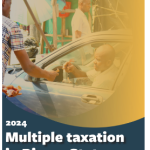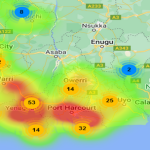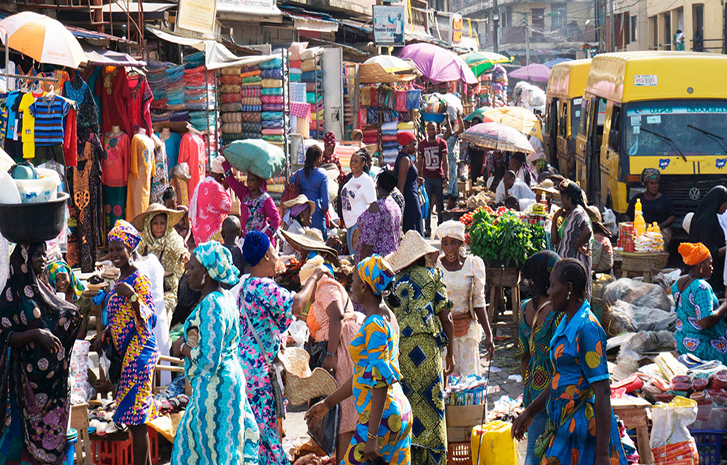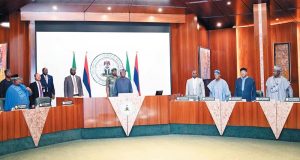
SDN – MULTIPLE TAXATION IN RIVERS STATE
September 25, 2024
Niger Delta Weekly Conflict Update: September 22-28, 2024
September 27, 2024The Federal Executive Council (FEC) has approved an Economic Stabilization Bill, which will soon be transmitted to the National Assembly.
Minister of Finance and Coordinating Minister of the Economy, Wale Edun, emphasized that the bill incorporates various measures, draft laws, and tax policies aimed at improving Nigeria’s economic environment.
This legislation comes from the recommendations of the Presidential Committee on Fiscal Policy and Tax Reforms, led by Taiwo Oyedele, and serves as a key component of the federal government’s economic stabilization plan to foster growth and stability.
One of the primary goal of the bill is to amend several laws, notably the Foreign Exchange Act, to enhance liquidity and promote electronic transactions over cash. This provision would strengthen the Central Bank’s capacity to attract foreign funds from international money transfer organizations, improving the operations of Nigeria’s foreign exchange market. Additionally, amendments to the Companies Income Tax Act would allow Nigerian professionals to offer services to foreign companies without requiring those companies to register locally, fostering employment and entrepreneurial opportunities.
The bill also proposes changes to the Fiscal Responsibility Act, focusing on surplus sharing and reserve fund management for government-owned enterprises. Overall, it aims to amend more than 15 tax, fiscal, and establishment laws, aiming to reduce inflation, strengthen the naira, create jobs, promote fiscal discipline, and alleviate poverty.
Taiwo Oyedele, chair of the Presidential Committee on Fiscal Policy and Tax Reforms, outlined 10 key proposed amendments to the bill on his X (formerly Twitter) account. These reforms are expected to shape Nigeria’s fiscal landscape and provide long-term inclusive growth. Among the proposed amendments are:
- Changes to income tax laws to enhance employment opportunities for Nigerians in global value chains, including the digital economy.
- Zero-rated VAT and improved incentive regimes to boost exports in goods, services, and intellectual property.
- Investment incentives in the gas sector, simplifying local content requirements to increase competitiveness.
- A reformed foreign exchange regime to boost forex liquidity, strengthen the naira, and sustain exchange rate convergence.
- Tax reliefs for private sector employers who provide wage awards and transport subsidies to their employees.
- Tax benefits for companies that generate new jobs and retain those employees for at least three years.
- Improved fiscal discipline and increased remittances from government agencies to the Consolidated Revenue Fund.
- Collaboration with states to suspend certain taxes on small businesses and vulnerable populations, including road haulage levies and other transportation charges.
- Introduction of a “Tax Identification Consolidation and Collaboration (TICC)” initiative to broaden the tax base and level the playing field for businesses.
- Additional funding provisions for the Student Loan Scheme.
These reforms aim to address Nigeria’s current economic challenges and pave the way for long-term sustainable growth, especially by easing the business environment for small and medium enterprises (SMEs).
In the Niger Delta, SMEs face unique challenges, including inadequate electricity, limited access to finance, and multiple taxation. These issues, combined with illegal levies, hinder business operations and economic growth. Despite the focus on oil wealth, SMEs are vital to the region’s economy, contributing over 65% of employment and capital formation.
Organizations like PIND Foundation and the Stakeholder Democracy Network (SDN) have been instrumental in shaping fiscal reforms, particularly addressing multiple taxation and illegal levies that affect small businesses in the Niger Delta. Through reports, workshops, and advocacy, these organizations have highlighted the negative impact of excessive taxation on business operations and livelihoods.
For more information on PIND’s efforts to tackle multiple taxation and illegal levies, visit:
https://pindfoundation.org/policy-brief-on-multiple-taxation-and-illegal-levies-on-businesses-in-abia-state/
https://pindfoundation.org/stakeholders-tax-policy-dialogue-fair-progressive-taxation-rivers-state/
https://pindfoundation.org/multiple-taxation-validation-workshop/
For SDN’s report on multiple taxation in Rivers State, which explores its causes and impacts on businesses and citizens, visit: https://ndlink.org/sdn-multiple-taxation-in-rivers-state
To the final draft of the National Fiscal Policy, click https://drive.google.com/file/d/1JEsg3SFcRdkb9fEUGeE1_qeUvGTgj9SU/view










